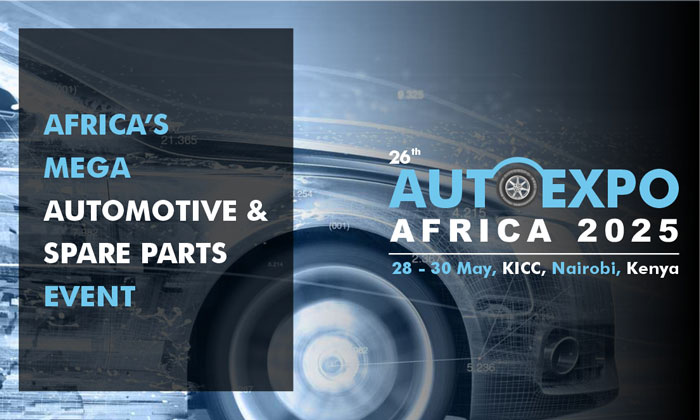

Startups are targeting Kenya as an African EV powerhouse
Posted on :Wednesday , 23rd February 2022
Many e-mobility businesses have set up shop in Kenya to try to get electric vehicles on Kenyan roads, potentially turning the country into a regional centre for EVs.
Working to alter areas such as public transit, motorbikes, and taxis, the firms want to leverage on Kenya's position as a worldwide leader in renewable energy, widespread technology adoption, and the government's support for electric cars through favourable legislation.
"Today, renewable energy accounts for more than 70% of our electricity. No, not in the near future. Today. That implies, in this global effort to electrify transit everywhere, it would have a larger impact for us to accomplish it here," says Jit Bhattacharya, co-founder and CEO of Nairobi-based e-mobility firm BasiGo.
Some of the firms advocating for the usage of electric cars in Kenya are BasiGo, Opibus, Kiri, Nopea Ride, EVM Africa, Caetano, and Agilitee Africa.
Kenya is a renewable energy pioneer, with 92.3 percent of electricity generated domestically in 2020 coming from hydro, thermal, and wind power—three times the amount renewables contributed to world electricity output.
The government is also moving ahead in the electric car arena. Only around 350 of the country's 2.2 million automobiles are electric, but Kenya hopes to boost this number.
Kenya decreased the import tariff on fully electric vehicles in 2019. The following year, it unveiled a strategy to accelerate EV adoption while lowering its reliance on imported petroleum and environmental cleanup. The proposal includes measures such as incorporating charging stations into public buildings and new developments.
Kenya Power, the country's power company, intends to establish charging stations around the country and to lobby for additional reductions in import duties for electric vehicles.
In a more recent display of support for sustainable energy, Kenya announced that its bus rapid transit system, which will be deployed in the country's capital, Nairobi, in June, will solely utilise electric and hybrid vehicles.
Since 2018, one firm, Finish Nopea Ride, has operated an electric car taxi service in Kenya.
Basigo intends to provide electric buses, as well as charging and maintenance services, to East African bus operators. The cars are supplied by BYD, one of the world's major manufacturers of electric automobiles. Through a finance strategy, BasiGo intends to make the buses affordable to operators. BasiGo has already sent two 25-seat electric buses to Kenya, where they are being tested for performance and dependability. In addition, the firm has established a charging and repair centre for electric buses in the city.
Basigo announced $4.3 million in startup investment to begin sales and deliveries of its electric buses this year, as well as local assembly in Kenya.
Aside from Kenya's environmental potential, Bhattacharya, the BasiGo CEO and co-founder, views the nation as a perfect entry point for its business owing to the country's massive, thriving public transportation infrastructure, where buses "are most highly utilised" with high mileages. This, he claims, will benefit Basigo's work and electric automobiles by lowering fuel and maintenance expenses.
Opibus is another Kenyan electric vehicle startup that designs, develops, and produces electric cars. The Swedish-Kenyan technology firm, founded in 2017, creates electric motorbikes, electric public transportation, and commercial vehicles, as well as charging and energy solutions.
Opibus has already deployed 160 bikes and ten automobiles that have been converted from gasoline and diesel engines. It debuted the first all-electric bus in Kenya, as well as the first African-designed electric bus, last month. Opibus secured $7.5 million in a fundraising round last year to prepare for scale-up and mass manufacturing beginning in 2022. It also collaborated with Uber to offer 3,000 electric motorcycles to Africa.
Six additional African countries have Opibus motorbike pilots. According to Albin Wilson, the business's chief marketing officer, the company picked Kenya as a focal point for its efforts because it sees potential for electric cars in the nation due to its drive for environmental legislation and support of technology advances. He claims that the government understands Opibus' mission and is working to put legislation in place to assist them "get off the ground."
"You can do so much more with this. It's a completely new industry," he explains. "It would be enormous if Kenya could become Africa's EV powerhouse."
Please Select an Option

Expogroup
Expogroup is a full service exhibition organiser with over 29 years experience in International trade exhibitions. Our current portfolio includes 28 annual exhibitions from a diverse range of industries being held across the Middle East & Africa.
EXPOGROUP © 1996 - 2025 | Privacy policy
